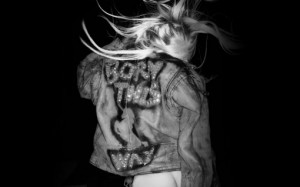I have a huge confession to make and that is that I am a huge Lady Gaga fan. I have been ever since the beginning of her career and no matter what people say, my love for her trashy electro 80’s-esque music is unshakable. Which is why when her brand new single, “Born This Way,” came out this past Thursday, my loyalty was conflicted. I was grooving along to the awesome beats and really trashy/simple/Madonna-aping/ego-booster lyrics until I got to this part:
DON’T BE A DRAG, JUST BE A QUEEN
WHETHER YOU’RE BROKE OR EVERGREEN
YOU’RE BLACK, WHITE, BEIGE, DON’T BE A DRAG, JUST BE A QUEEN
WHETHER YOU’RE BROKE OR EVERGREEN
YOU’RE BLACK, WHITE, BEIGE, CHOLA DESCENT
YOU’RE LEBANESE, YOU’RE ORIENT
WHETHER LIFE’S DISABILITIES
LEFT YOU OUTCAST, BULLIED, OR TEASED
REJOICE AND LOVE YOURSELF TODAY
Whoa, hold up — did she just say “Orient?”
 I haven’t heard that word in mainstream pop radio for years! Now that we have one of the biggest pop songs in months playing all over the airwaves, I can’t help but wonder all sorts of crazy questions in my head: Is it okay to call Asians “Oriental” now? Are we back in the 1950’s? Why did I love Lady Gaga again? It looks like I’m not the only one with these troubling questions as the Chicanos Unidos Arizona finds Lady Gaga’s usage of the words, “chola” and “Orient” to be offensive. If you continue digging, you’ll find other people who took notice like this one here, or here, or another one here.
I haven’t heard that word in mainstream pop radio for years! Now that we have one of the biggest pop songs in months playing all over the airwaves, I can’t help but wonder all sorts of crazy questions in my head: Is it okay to call Asians “Oriental” now? Are we back in the 1950’s? Why did I love Lady Gaga again? It looks like I’m not the only one with these troubling questions as the Chicanos Unidos Arizona finds Lady Gaga’s usage of the words, “chola” and “Orient” to be offensive. If you continue digging, you’ll find other people who took notice like this one here, or here, or another one here.
For now, let’s focus on the word “Oriental.” What does it exactly mean?
The word “Oriental” is a blanketed term that grouped all Asian & Middle Eastern nations together as the opposite of “Occidentals”, which described Western (white) people. In short, the historical context of “Oriental” is that it described these people as exotic, mysterious entities that were inferior compared to the Occidental counterparts. Interestingly enough, in the UK, it is used to refer to people originating from East & Southeast Asia while “Asians” are used to refer to South Asians. However in the US, it is usually recognized as an outdated, offensive term since it has the equivalent of calling a black person “Negro” or “colored.”
But within the APA community, not everybody shares this opinion. One fan of Lady Gaga declared this on her forum board:
I’m Chinese and have never had a problem with the term Oriental. (beats the sweeping generalization “Asian” by a mile) Lately I’ve been hearing that it is indeed racist, mostly from Americans. Why is this so?
Uh oh. If you ask around, it is clear that she’s not alone in this opinion as there are many within our community who doesn’t find the word “Oriental” to be offensive at all. For me, I know that I DO find this word to be offensive and incredibly out-dated. I guess it helps being an APA studies major helps as it got me to critically analyze the historical context of words and events within our community’s history. It could also be argued that I may take things way too seriously when it comes to stereotypical jokes about Asians, but that’s for another time.
Under the context of Lady Gaga’s song, I don’t find the words that she use to be racist in any means but a bit ignorant. I certainly don’t agree with those who believe that she herself is racist. It can be argued that there really is no point in getting academic about this since after all, this is Lady Gaga we are talking about here. But I firmly believe that no matter how trashy art can be, art is still art and it still conveys a message to the world. Considering that this song will most likely be stuck in our radios for the next few months, it is therefore imperative that we must ask ourselves this question, even if nobody wants to hear about it.
So to the readers of 8Asians (and anybody else stumbling in), what do you think of the word “Oriental”?
- Excited
- Fascinated
- Amused
- Disgusted
- Sad
- Angry








